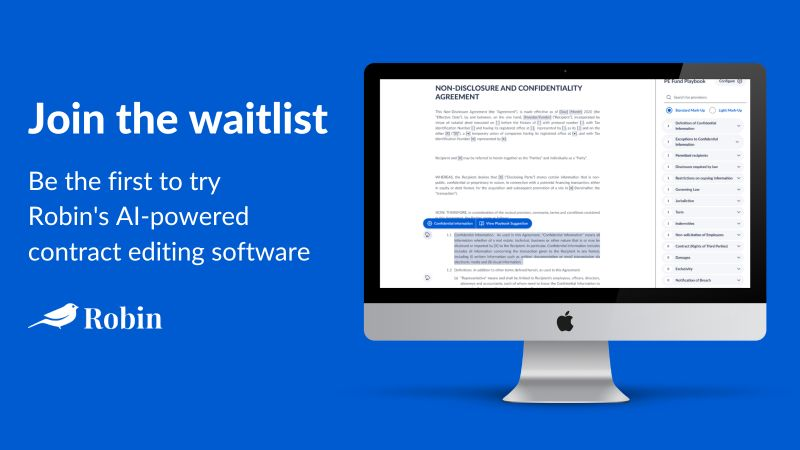Anthropic, a buzzy AI startup co-founded by ex-OpenAI employees, has begun offering partners access to its AI text-generating models.
The first commercial venture to announce that it’s integrating Anthropic models is Robin AI, a legal tech startup that’s raised over $13 million from investors including Plural, Episode 1 and the Google Black Founders Fund. Quora’s experimental chatbot app for iOS and Android, Poe, uses Anthropic models, but it’s not currently monetized.
Robin CEO Richard Robinson disclosed few details regarding the Anthropic relationship, but told TechCrunch that Robin worked to fine-tune an Anthropic model on a dataset of legal text to draft and negotiate contracts.
“We are very fortunate to be Anthropic’s launch partner for the legal sector — the team’s focus on AI safety aligns with our ‘lawyer-in-the-loop’ software-as-a-service product — deliberately designed to manage the risk of even the most advanced models ‘hallucinating,'” Robinson said in a statement.

Robin AI is one of the first commercial ventures to use Anthropic models. Image Credits: Robin AI
Anthropic has been relatively quiet about its plans to productize its work in the generative text AI space, preferring instead to focus on academic research. But late last year, the company launched a closed beta for an AI system, called Claude, similar to OpenAI’s ChatGPT that appeared to improve upon the original in key ways. Claude was created using a technique Anthropic developed called “constitutional AI,” which aims to provide a “principle-based” approach to aligning AI systems with human intentions — letting AI similar to ChatGPT respond to questions using a simple set of principles (e.g. avoid giving harmful advice) as a guide.
Preliminary impressions of Claude were good. But like ChatGPT, the system suffered from limitations, like giving dangerous answers to questions (e.g. how to make meth at home) and making inconsistent, factually wrong statements.
It’s unclear whether the model Robin’s using is Claude or some derivative — neither Robin nor Anthropic would say. And even after repeated prodding, Anthropic wouldn’t reveal how many partners it’s currently working with (or how they came to work with them) and how many models it plans to open up to commercial usage.
But no doubt, Anthropic is feeling some sort of pressure from investors to recoup the hundreds of millions of dollars that’ve been put toward its AI tech.
Most recently, Google pledged $300 million in Anthropic for a 10% stake in the startup. Under the terms of the deal, which was first reported by the Financial Times, Anthropic agreed to make Google Cloud its “preferred cloud provider” with the companies “co-develop[ing] AI computing systems.”
Anthropic wasn’t founded exclusively with a profit-driven mission. Dario Amodei, the former VP of research at OpenAI, launched the company in 2021 as a public benefit corporation, taking with him a number of OpenAI employees, including OpenAI’s former public policy lead Jack Clark. Amodei split from OpenAI after a disagreement over the company’s direction, namely the startup’s increasingly commercial focus.
But AI systems are expensive to develop and maintain. Ballooning costs led Anthropic to pursue outside backing, including a $580 million tranche from a group of investors including disgraced FTX founder Sam Bankman-Fried, Caroline Ellison, Jim McClave, Nishad Singh, Jaan Tallinn and the Center for Emerging Risk Research.
Whether startup partnerships — and Big Tech investments — denote a shift in Anthropic’s priorities isn’t yet clear. But what is clear is that the company believes its technology is differentiated to compete with rivals like OpenAI, Cohere and AI21 Labs, all of which offer paid access to their text-generating AI via APIs.
